The key to prevention is knowledge. Here are some tips taken from the Child Welfare Information Gateway’s Prevention Resource Guide you may find helpful. If you don’t have children, consider sharing this with those who do.
- Take an active role in your children’s lives. Learn about their activities and people with whom they are involved. Stay alert for possible problems.
- Watch for “grooming” behaviors in adults who spend time with your child. Warning signs may include frequently finding ways to be alone with your child, ignoring your child’s need for privacy (e.g., in the bathroom), or giving gifts or money for no particular occasion.
- Ensure that organizations, groups, and teams that your children are involved with minimize one-on-one time between children and adults. Ask how staff and volunteers are screened and supervised.
- Make sure your children know that they can talk to you about anything that bothers or confuses them.
- Teach children accurate names of private body parts and the difference between touches that are “okay” and “not okay.”
- Empower children to make decisions about their bodies by allowing them age-appropriate privacy and encouraging them to say “no” when they do not want to touch or be touched by others—even in nonsexual ways.
- Teach children to take care of their own bodies (e.g., bathing or using the bathroom) so they do not have to rely on adults or older children for help.
- Educate children about the difference between good secrets (such as birthday surprises) and bad secrets (those that make the child feel unsafe or uncomfortable).
- Monitor children’s use of technology, including cell phones, social networking sites, and messaging. Review their friends lists regularly and ask about any people you don’t recognize.
- Trust your instincts! If you feel uneasy about leaving your child with someone, don’t do it. If you are concerned about possible sexual abuse, ask questions.
- If your child tells you that he or she has been abused, stay calm, listen carefully, and never blame the child. Thank your child for telling you. Report the abuse right away.
Our partners at the Children’s Safety Center of Washington County have some excellent resources to help facilitate these conversations with your children. Find them here.
We hope you find these tips helpful and feel more empowered to prevent child abuse.
If you suspect a child has been or is being abused, call the Child Abuse Hotline at 1-844-SAVE-A-CHILD (1-844-728-3224).
 Answered by Advocate Supervisor Abra Morgan, LSW
Answered by Advocate Supervisor Abra Morgan, LSW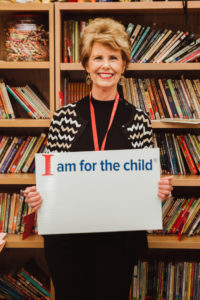 There are certain necessary CASA commitments that take place during regular business hours, such as case meetings or court hearings. Court hearings typically occur 3 to 4 times a year and are scheduled months in advance. We encourage potential volunteers to have a conversation with their employers about taking time off for these appointments. We generally find that employers are willing to be flexible, particularly for such a good cause. If a volunteer must miss one of these important meetings, their CASA staff supervisor will participate and communicate on their behalf, later providing the volunteer with a summary of what they missed.
There are certain necessary CASA commitments that take place during regular business hours, such as case meetings or court hearings. Court hearings typically occur 3 to 4 times a year and are scheduled months in advance. We encourage potential volunteers to have a conversation with their employers about taking time off for these appointments. We generally find that employers are willing to be flexible, particularly for such a good cause. If a volunteer must miss one of these important meetings, their CASA staff supervisor will participate and communicate on their behalf, later providing the volunteer with a summary of what they missed.
 It’s not always been easy. They’ve been surprised by how drawn out this process is for children and earnestly wish that these innocent kids didn’t have to face these circumstances. But, the days they’ve witnessed adoptions or heard how one of their CASA kids continues to excel in school despite her trauma…well, they know their time and energy has been worth it. And through the good and bad, they are there for each other.
It’s not always been easy. They’ve been surprised by how drawn out this process is for children and earnestly wish that these innocent kids didn’t have to face these circumstances. But, the days they’ve witnessed adoptions or heard how one of their CASA kids continues to excel in school despite her trauma…well, they know their time and energy has been worth it. And through the good and bad, they are there for each other. Answered by Training Manager Ryan Brashears
Answered by Training Manager Ryan Brashears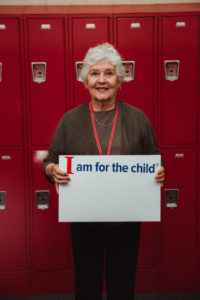 Absolutely not! Most of our 410 advocates have no formal legal training whatsoever. We often get asked, “Who makes the best advocate?” This is such a hard question to answer. Is it a therapist, lawyer, nurse, retired teacher? While people with these backgrounds are often fantastic advocates, we find that a person with a heart for children is the best place to start. People who are willing to be open-minded, flexible, and committed are the very best advocates we have. You must be able to have hope and the belief that people can change their lives for the better. So, there is no need for you to go to law school! We promise to give you all the tools you need to navigate the court system, and we will be with you every step of the way.
Absolutely not! Most of our 410 advocates have no formal legal training whatsoever. We often get asked, “Who makes the best advocate?” This is such a hard question to answer. Is it a therapist, lawyer, nurse, retired teacher? While people with these backgrounds are often fantastic advocates, we find that a person with a heart for children is the best place to start. People who are willing to be open-minded, flexible, and committed are the very best advocates we have. You must be able to have hope and the belief that people can change their lives for the better. So, there is no need for you to go to law school! We promise to give you all the tools you need to navigate the court system, and we will be with you every step of the way. Answered by Program Director Shelley Hart
Answered by Program Director Shelley Hart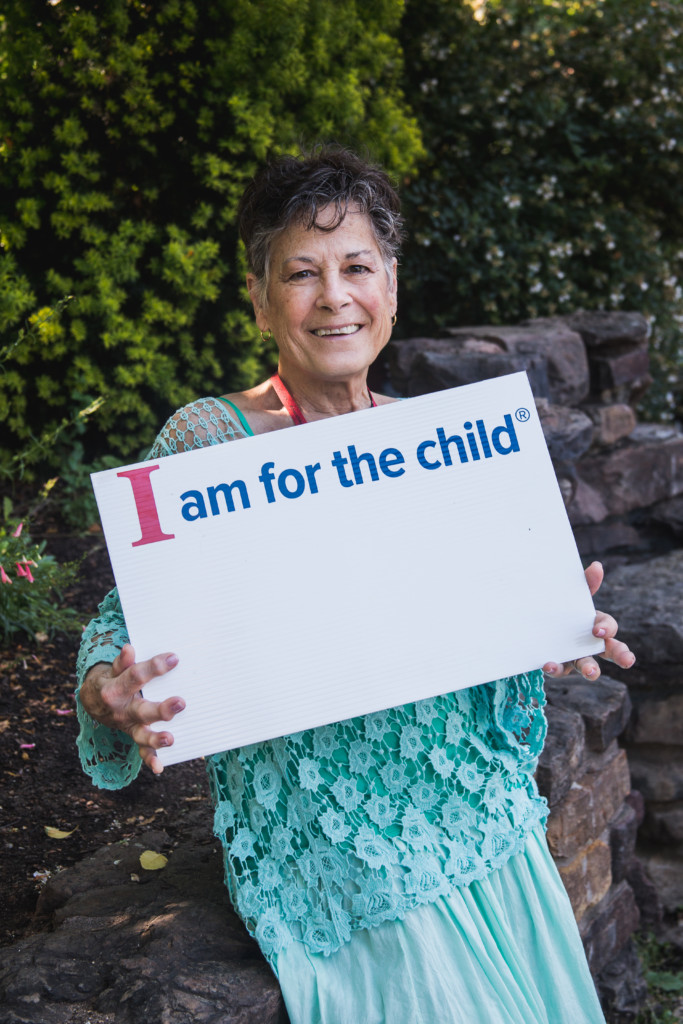 Every child in foster care will have a fierce and skilled CASA champion by their side. That’s our vision. But what does it take to support a community volunteer on their journey to becoming skilled?
Every child in foster care will have a fierce and skilled CASA champion by their side. That’s our vision. But what does it take to support a community volunteer on their journey to becoming skilled?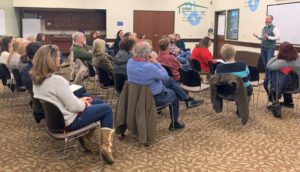

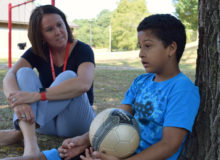 Anticipating that we would meet our 2020 goal, we created a concurrent goal of ensuring our volunteers are highly trained to fiercely advocate for children in foster care. We have highly trained and specialized staff who are providing support and training to our amazing volunteers. Serving every child in need in 2020 doesn’t mean more children will not enter the foster care system, nor will we stop recruiting and training new volunteers! We have two new volunteer training classes starting in August and several more scheduled after that.
Anticipating that we would meet our 2020 goal, we created a concurrent goal of ensuring our volunteers are highly trained to fiercely advocate for children in foster care. We have highly trained and specialized staff who are providing support and training to our amazing volunteers. Serving every child in need in 2020 doesn’t mean more children will not enter the foster care system, nor will we stop recruiting and training new volunteers! We have two new volunteer training classes starting in August and several more scheduled after that. Despite the hardships they’ve faced, 9 CASA teens overcame the odds and earned their diplomas or GED this year! One inspiring young woman even graduated a year early while being a single mom. CASA Older Youth Specialist Amanda Wilkerson shared, “I think these teens are all so impressive. Most of them came into care later in their lives and attended multiple schools. They’ve had to overcome a lot of hurdles.” Thanks to the support of their CASA volunteers and foster families, each of these young people is on their way to living the life they want to lead. Three of the graduates plan to attend community college or technical college in the fall. The graduate mentioned above intends to join the military. Others will be heading into the workforce.
Despite the hardships they’ve faced, 9 CASA teens overcame the odds and earned their diplomas or GED this year! One inspiring young woman even graduated a year early while being a single mom. CASA Older Youth Specialist Amanda Wilkerson shared, “I think these teens are all so impressive. Most of them came into care later in their lives and attended multiple schools. They’ve had to overcome a lot of hurdles.” Thanks to the support of their CASA volunteers and foster families, each of these young people is on their way to living the life they want to lead. Three of the graduates plan to attend community college or technical college in the fall. The graduate mentioned above intends to join the military. Others will be heading into the workforce.